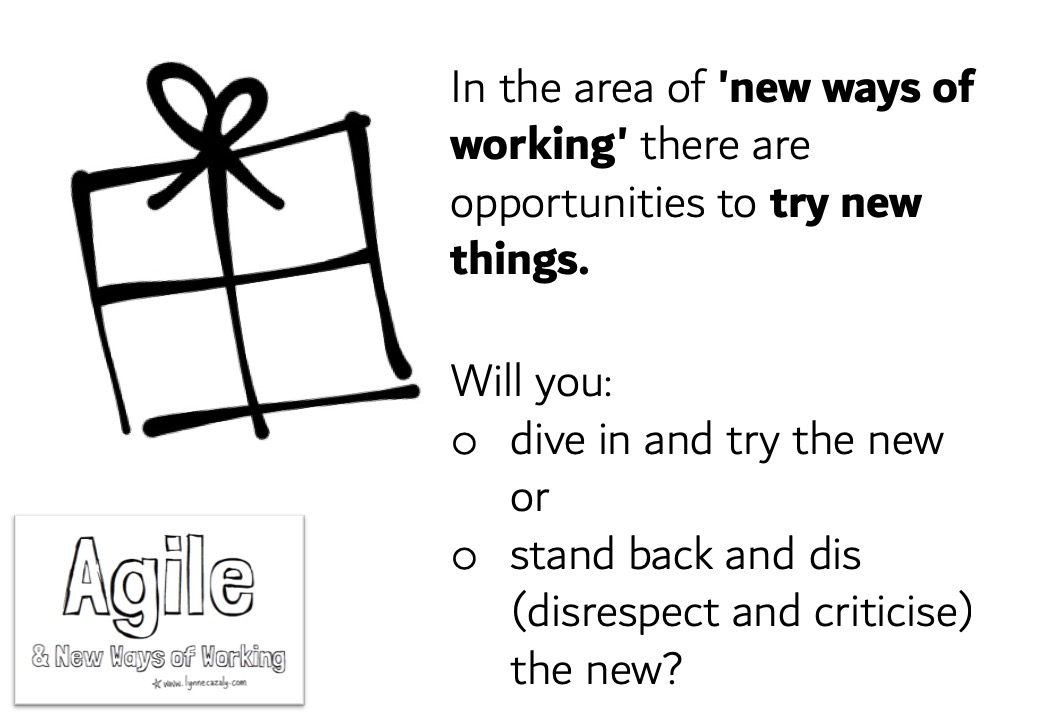What’s the new-A-U
 Friday, December 20, 2019 at 11:49AM
Friday, December 20, 2019 at 11:49AM  Business as usual has been, well, business as usual (BAU) for ever!
Business as usual has been, well, business as usual (BAU) for ever!
In the business world it’s the stuff that’s done to make everyday operational activities happen.
So ...what’s the NEW A U ? What new things are happening that will bring about change? What’s planned up ahead that will continue to challenge thinking, challenge convention and bring a new mindset and behaviour to how things are done?
Whether you’re a leader of a team, a team member in an organisation, or a solo operator running yourown show, what's your ’new as usual’?
How are you bringing new things into your business regularly? The new can be scary, untested, untried. I heard someone recently say, ‘I’m not trying something new unless it's guaranteed to work’. But how will you know it could work, unless you try it?
New ways of thinking and working help you gain the benefits of those new ways sooner, delivering advantages and value to your customers, gaining the advances of first and early movers. Want to wait until more or the majority of people are doing something, because it’s less risky or safer? Great. Go line up and wait... over there. I’m moving along to NEW-A-U. See ya!





















